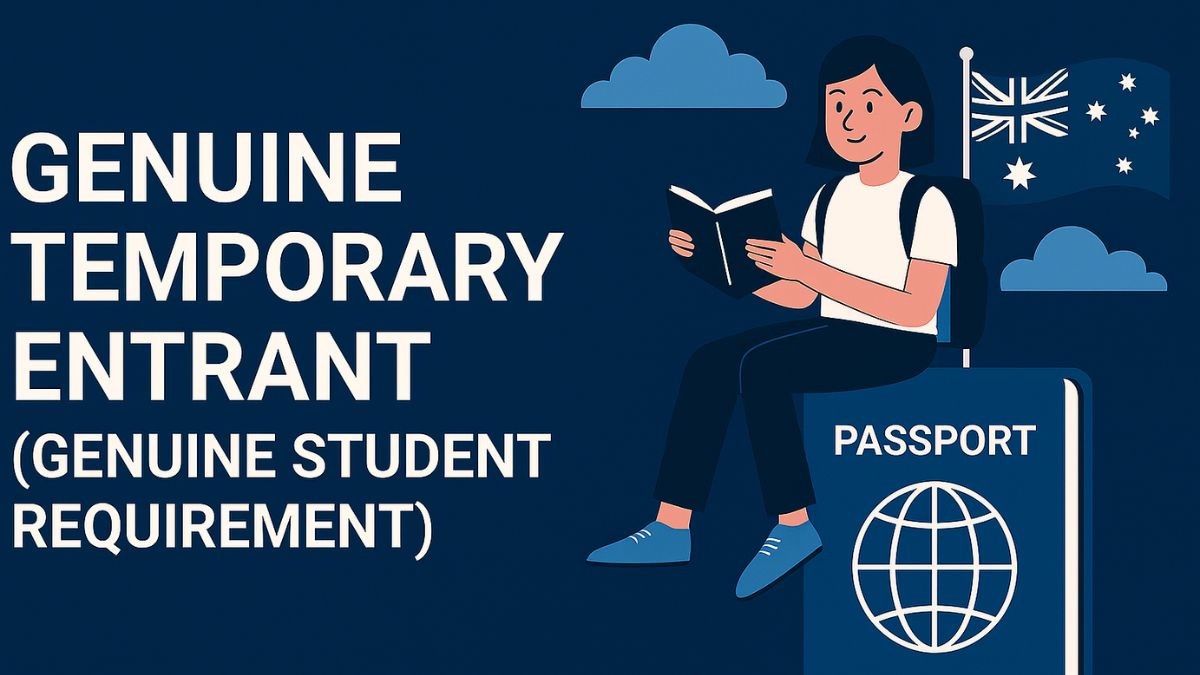
- January 1, 2025
- Heisenberg
- 0
Studying abroad can be an exciting yet complex journey filled with numerous decisions and requirements. From choosing the right university and securing a visa to preparing for life in a new country, there are many steps involved. A structured approach is essential to ensure a smooth and organized experience. Whether you are considering furthering your education or exploring new cultural horizons, understanding each phase of the study abroad process will help you stay on track.
This guide provides a step-by-step breakdown of the study abroad process, offering insights and practical tips to help you navigate each stage with confidence.
Table of Contents
Toggle1. Research & Planning
Before diving into the study abroad process, thorough research and careful planning are key. This phase sets the foundation for your entire journey.
Research Universities & Programs
The first step in planning your study abroad journey is identifying the right universities and programs. Begin by listing down countries, universities, and programs that align with your academic and career goals. Research various institutions based on factors such as reputation, course offerings, faculty, tuition fees, and student reviews. Consider what aligns best with your long-term objectives.
Create a shortlist of universities that meet your criteria, keeping aspects like location, cost of living, and cultural fit in mind. Utilize online resources, university websites, and international ranking platforms to gather detailed information about each institution.
Set Academic & Financial Goals
Establishing clear academic and financial goals is critical in the planning phase. Determine the degree you wish to pursue, the field of study, and the duration of your program. Consider whether you are aiming for undergraduate, postgraduate, or specialized courses.
At the same time, assess the financial aspects. Tuition fees, living expenses, travel costs, and health insurance are some of the financial factors you’ll need to consider. Research scholarships, grants, and financial aid opportunities that may help offset costs.
2. Prepare & Apply
Once you’ve completed your research, the next step involves preparing your applications and ensuring all required documentation is in order.
Gather Required Documents
The application process for studying abroad involves submitting various essential documents. Some of the key requirements include:
- Academic Transcripts & Certificates: Proof of previous educational qualifications.
- Standardized Test Scores: Depending on the country and university, tests like the GRE, TOEFL, or IELTS may be required.
- Statement of Purpose (SOP): A document outlining your reasons for studying abroad, your academic background, and future goals.
- Letters of Recommendation: Academic or professional letters attesting to your abilities and character.
- Passport: Valid passport for international travel.
Ensure that all documents are up-to-date, well-organized, and meet the specific requirements of the university or country you are applying to. Missing or incomplete documentation can delay your application process.
Apply to Universities
After gathering your documents, start the application process. Many universities now offer online applications, making the process more accessible. Create an account on the respective university websites and fill out application forms, paying attention to deadlines.
Keep track of submission dates for each application. Some programs may require additional materials, such as interviews or supplementary information, so be prepared for any requests.
3. Visa Application & Preparation
Securing a study visa is one of the most critical steps in the study abroad process. Different countries have varying visa requirements and application procedures, so it’s essential to familiarize yourself with the specific requirements of your destination.
Understand Visa Requirements
Study visa requirements vary depending on the country you plan to study in. Research the type of visa you need, the duration of stay allowed, and any conditions attached (like work restrictions, travel limits, etc.).
- General Requirements: Passport, admission letter from a recognized institution, proof of financial support, health insurance, and language proficiency certificates (like IELTS or TOEFL).
- Country-Specific Requirements: Some countries may require additional documents such as proof of financial stability, medical checks, or criminal record certificates.
Make sure to stay updated with the official guidelines from the embassy or consulate of your destination country.
Apply for a Study Visa
Once you’ve gathered the necessary documents, apply for your study visa well in advance of your planned departure. Most visa applications require an interview, which might involve questions about your study plans, financial situation, and intent to return after your studies.
- Appointment & Fees: Schedule your visa appointment early and pay any required fees. Fees vary by country and visa type.
- Document Submission & Processing: Submit your documents to the embassy or consulate, and allow ample time for processing. Visa processing times vary, so plan accordingly.

4. Finances & Funding
Studying abroad often comes with substantial financial demands. Preparing and managing your finances is crucial to ensure a smooth transition.
Estimate Costs
Start by estimating the total costs associated with studying abroad, including:
- Tuition Fees
- Living Expenses: Accommodation, food, transportation, and daily expenses.
- Health Insurance: Mandatory in most countries.
- Travel Costs: Flights, local travel, and visa fees.
Create a detailed budget that includes all expected expenses. Don’t forget to account for any unforeseen costs, such as emergency medical expenses or leisure activities.
Scholarships & Financial Aid
Many universities and governments offer scholarships and financial aid to international students. Explore options that match your academic profile and financial situation.
- Merit-Based Scholarships
- Need-Based Aid
- External Funding Sources: Private organizations, government programs, or educational foundations often offer grants and loans.
Applying for these funding options can help reduce your financial burden and make your study abroad experience more affordable.
5. Pre-Departure & Orientation
Before you head to your destination, there are several essential preparations to ensure a smooth transition.
Travel & Accommodation Arrangements
Book your flight well in advance to get the best deals. Research and secure accommodation, whether it’s on-campus housing or off-campus apartments, to ensure a place to stay when you arrive.
- Health & Safety: Check if your destination requires health or travel insurance and make arrangements accordingly.
- Cultural Orientation: Familiarize yourself with the local culture, customs, and regulations. Understanding local norms will make your transition easier.
Prepare for Your Stay
Before leaving, ensure all essential documents like your passport, visa, and admission letter are easily accessible. Prepare a checklist of items you’ll need for your new life abroad, such as clothing, necessary electronics, and medications.
Conclusion
The study abroad process involves several key steps, from research and application to securing a visa and managing finances. Each stage plays a vital role in ensuring a successful transition to your new academic journey. By following these outlined steps, you’ll be better prepared to navigate the complexities of studying abroad and achieve your educational goals.
If you’re planning to study abroad, the right preparation can make a significant difference. For more valuable insights and information on visas, travel, and other educational opportunities, explore our blog for further guidance.







